Please fill out the following information, and RRFC Admissions will contact you to discuss our program offerings:
Issue #233
by Liya Swift
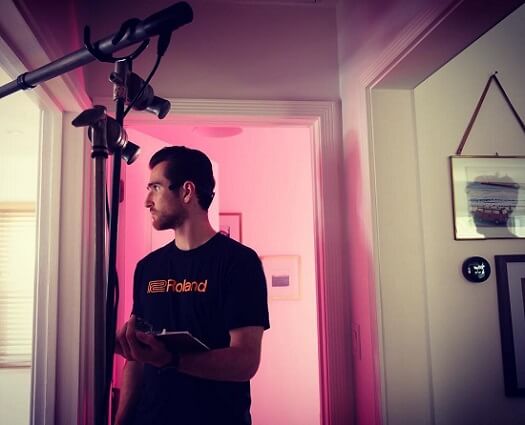
Film Connection graduate Steven Hadrych III

Recording Connection mentor Danny Allen at War Drum Mixing
 “I got a job at a recording studio in Upstate New York, called Sprig Music where I got to work with the amazing Peter Hopper. This guy is incredible. He had been in the recording industry for 46 or 47 years, or something like that, worked with some huge names. He’s the most humble guy you’d ever meet. He doesn’t like to talk about the big names that he works with, but every now and again he’ll tell a story and you’ll say, ‘Wait, who were you working with here?’ and he might say it…I learned so much from him in a really short period of time. So he was a really big one for me.
Another one would have to be the guy who really gave me a chance and taught me some of the basics when I was 16, 17 years old. His name is David Woodkirk. He’s such a great guy. He was always excited about everything. It didn’t matter if the band sucked. It didn’t matter if everything was falling apart. He was just so happy to be there and so happy to mix. Learning from him, I got to see that what we do, it’s fun, it’s awesome! It’s so cool to be part of this. Why would I not be happy?
If I had learned from somebody with a snobby attitude or somebody who thought they were a hot shot, then that’s what I would have gotten. I would have thought, ‘Oh, everything has to be perfect, and if it’s not, then it sucks…so I don’t want to be part of it. That’s just totally the opposite of how it should be.”
So why do you choose to mentor for Recording Connection?
“I’ve found over the years that I just love teaching in general, basically sharing what knowledge and tricks that I have with other people. And when you see it click with somebody and you see them either get it or get better at it because of something that you showed them, it’s a really thrilling feeling for me…I really enjoy seeing people grow, because I genuinely care about people, and when I see somebody who is as excited as I am about something, I want to see them succeed.”
So let’s say you have a student who you’re letting sit in and observe during one of your recording sessions with an artist. How should they handle themselves?
“Obviously, they should be paying attention. There are a few things that, if I see them, I’m going to question how involved or interested they really are, how much they really want this. If your cellphone is out, you’re not paying attention to the session. You should be listening, and when you’re listening and paying attention, you’re totally consumed by it…
During actual red light recording, you’re hyper-focused. Sometimes you’re listening so hard that you notice other sounds and can tell me when the time is right, ‘Oh, shoot, a semi-truck with a diesel engine just drove by while he was saying that line. We might have to go back and fix that.’ That’s one thing that I try to really push and kind of expect from students. And ask questions. If the artist is not there or if there’s not something directly going on, questions are awesome. But preferably write them down and ask them all at the end, because during the moment, during the session, it’s all about the artist.”
Learn more about Recording Connection for audio engineering, music production, live sound, Ableton, beat making and more.
“I got a job at a recording studio in Upstate New York, called Sprig Music where I got to work with the amazing Peter Hopper. This guy is incredible. He had been in the recording industry for 46 or 47 years, or something like that, worked with some huge names. He’s the most humble guy you’d ever meet. He doesn’t like to talk about the big names that he works with, but every now and again he’ll tell a story and you’ll say, ‘Wait, who were you working with here?’ and he might say it…I learned so much from him in a really short period of time. So he was a really big one for me.
Another one would have to be the guy who really gave me a chance and taught me some of the basics when I was 16, 17 years old. His name is David Woodkirk. He’s such a great guy. He was always excited about everything. It didn’t matter if the band sucked. It didn’t matter if everything was falling apart. He was just so happy to be there and so happy to mix. Learning from him, I got to see that what we do, it’s fun, it’s awesome! It’s so cool to be part of this. Why would I not be happy?
If I had learned from somebody with a snobby attitude or somebody who thought they were a hot shot, then that’s what I would have gotten. I would have thought, ‘Oh, everything has to be perfect, and if it’s not, then it sucks…so I don’t want to be part of it. That’s just totally the opposite of how it should be.”
So why do you choose to mentor for Recording Connection?
“I’ve found over the years that I just love teaching in general, basically sharing what knowledge and tricks that I have with other people. And when you see it click with somebody and you see them either get it or get better at it because of something that you showed them, it’s a really thrilling feeling for me…I really enjoy seeing people grow, because I genuinely care about people, and when I see somebody who is as excited as I am about something, I want to see them succeed.”
So let’s say you have a student who you’re letting sit in and observe during one of your recording sessions with an artist. How should they handle themselves?
“Obviously, they should be paying attention. There are a few things that, if I see them, I’m going to question how involved or interested they really are, how much they really want this. If your cellphone is out, you’re not paying attention to the session. You should be listening, and when you’re listening and paying attention, you’re totally consumed by it…
During actual red light recording, you’re hyper-focused. Sometimes you’re listening so hard that you notice other sounds and can tell me when the time is right, ‘Oh, shoot, a semi-truck with a diesel engine just drove by while he was saying that line. We might have to go back and fix that.’ That’s one thing that I try to really push and kind of expect from students. And ask questions. If the artist is not there or if there’s not something directly going on, questions are awesome. But preferably write them down and ask them all at the end, because during the moment, during the session, it’s all about the artist.”
Learn more about Recording Connection for audio engineering, music production, live sound, Ableton, beat making and more.
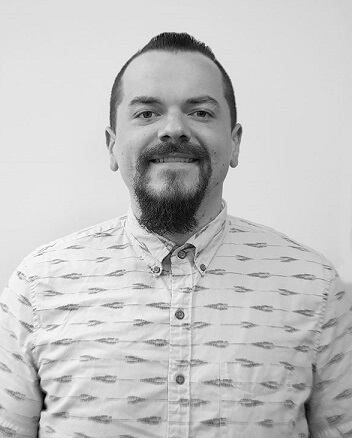
Sam Zulfer, Lead Academic Facilitator, RRFC.
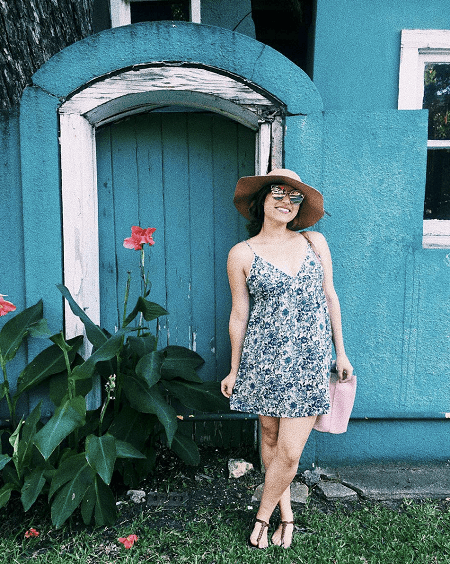
Recording Connection student Lisa Del Bosque
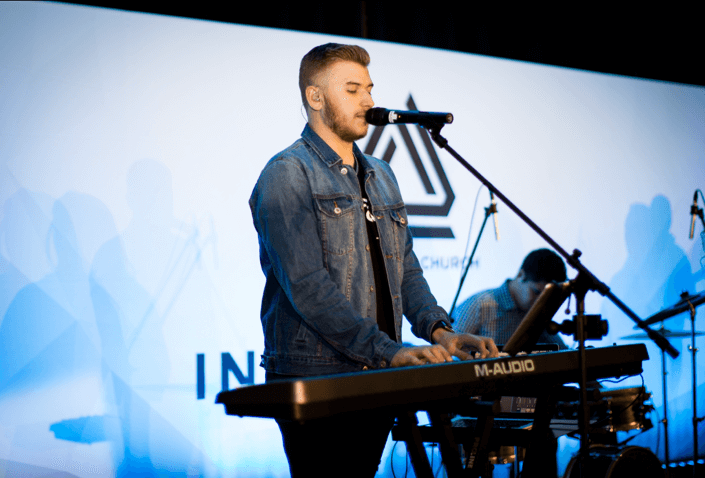
Recording Connection grad Connor Donald
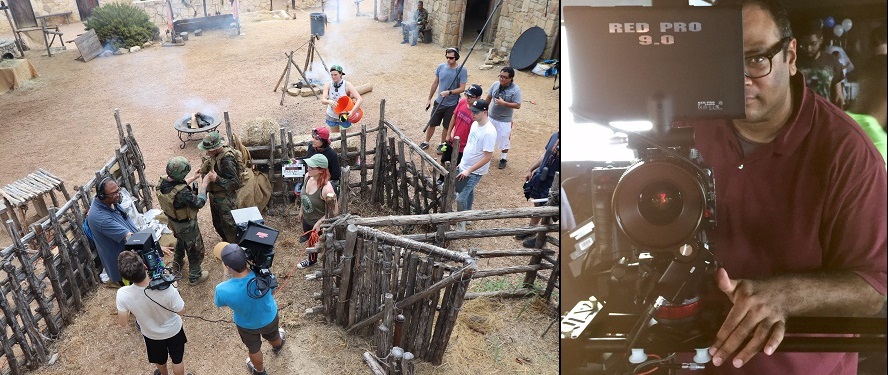
Aerial behind the scenes during the making of “The Fallen” | Film Connection grad, Ananth Agastya
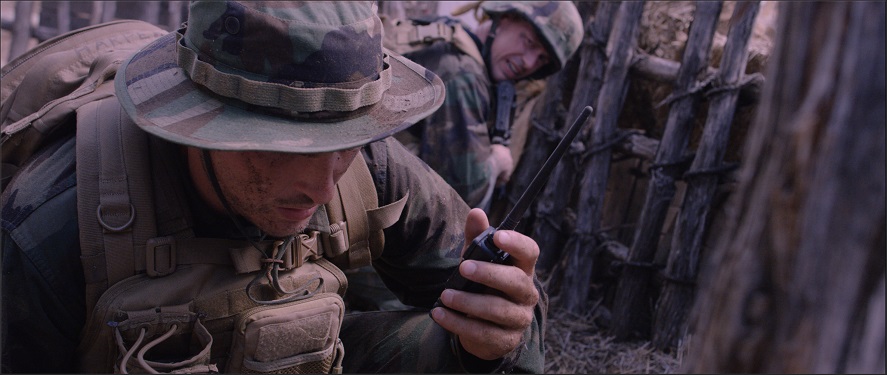
“The Fallen” by Ananth Agastya

RRFC is education upgraded for the 21st century.
Get the latest career advice, insider production tips, and more!
Please fill out the following information, and RRFC Admissions will contact you to discuss our program offerings:
Stay in the Loop: Subscribe for RRFC news & updates!
© 2025 Recording Radio Film Connection & CASA Schools. All Rights Reserved.


